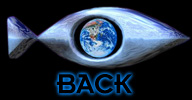


The Christian God has character that distinguishes Him as a person. The task of Christian ethics is to determine what conforms to the likeness of God's character and what does not. Because God is Holy, He loves good and hates evil. One of the great commands repeated in scripture by God is is "Be Holy, for I am Holy." God's moral nature is absolute and unchanging. If this is not true, then man has no basis for morals or ethics- in fact they CANNOT exist.
God's word as revealed in the Bible is of supreme importance because it tells us in practiical and unambiguous terms what Holiness looks like. It provides us with a framework, or grid system by which a Christian ethic must be constructed. The concept that right and wrong are absolutes based on the nature and character of a personal, loving and Holy God is far superior theoretically and practically to any construct of moral relativism. It fits the way things really are and the requirements for life itself.
In general revelation, what everyone can observe from the worlds, God has granted every man a conscience- a sense of right and wrong. (John 1:9, Romans 1). In a fallen world, conscience is easily rationalized and ignored. The heart of man is "deceitful above all things and desperately wicked", as the prophet declared. Yet God expects man to discern between good and evil (Hebrews 5:14). He also demands that we choose God's way (good) and avoid evil.
God's moral order governs the universe. It is as important as His physical laws and in the Christian worldview, Truth has consequences. Reality itself is such that when man violates God's moral law, which emanates from His holy nature, negative consequences follow. Man reaps what he sows later than he sows and more than he sows.
God's moral law is absolute. G. K. Chesterton said "There
is an infinity of angles at which one falls, only one at which
one stands." God's way is the way of wisdom, the way of
thuth and the way of righteousness. This way is exclusive in nature,
exemplified by a straight and narrow path. This exclusivity is
the source of consternation of the world, which wants all views
generated by man to be equally valid and tolerated. Ethical relativism
can only lead to chaos and destruction.
Jesus called himself "the Way, the Truth and the life".
So the Christian has not only the special revelation of scripture
to show him right and wrong, he has an infallible guide in the
life of Jesus Christ. Jesus lived a perfect moral life on earth,
not only so that He could save us as a substitute for the penalty
of sin, but also that we could know what holiness looks like in
practical terms.
The Christian believes, based on the testimony of the Bible, that societies and individuals that embrace a relativistic moral ethic incur the wrath of God (Isaiah 5:20.) This same passage declares that God has invested His light in chosen people on the earth and we are to be the lights of the world. First Israel failed to live up to this imperative, and now the Church has this commission to fulfill.
Ethical relativists to the paradoxical question, "If God is sovereign, can man be free?" The testimony of scripture is that indeed God rules over the universe as sovereign, but not in a way that overturns the responsibility of man. Man is not a robotic automaton, forced to act in a specific way. In fact sin destroys free will and holds mankind in bondage, which results in death.
True freedom is offered by Christ, who came to set captives free. Whoever trusts in, adheres to, and relies on Christ to break the bonds of sin will have eternal life- not just everlasting life, but life abundant and free in the here and now.
The Christian's ethical order is not a prison, it is the entry into a community of grace in which each individual is valued and who seeks to love and serve God with all their "hearts, minds, souls and strength" (Mark 12:30) rather than be a slave to self and sin. Thus we are renewed as we die daily to self and are conformed to the likeness of the Son of God in our sanctification.
